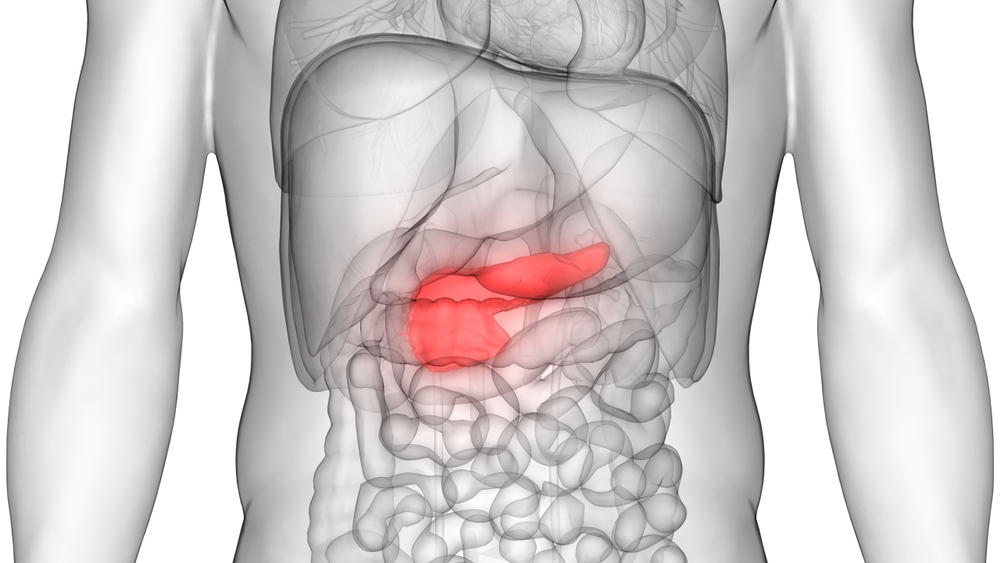
Summary
Why get tested?
CA 19-9 is a protein that is found on the surface of certain cells in the pancreas and other internal organs. Healthy people have low levels of CA 19-9 in their blood. However, pancreatic cancer cells produce high levels of CA 19-9 making it useful as a tumour marker to follow the course of pancreatic cancer. A tumour marker is the name for a substance made either by cancer cells themselves or by the body in response to cancer.
CA 19-9 is high in most people with advanced pancreatic cancer, but it can also be raised in other cancers including bowel, stomach, lung and thyroid cancers as well as other non-malignant conditions such as gallstones, pancreatitis, cystic fibrosis and liver disease. Because many other conditions can cause CA 19-9 to rise it is not recommended as a test to screen for cancer for people who do not have symptoms of pancreatic cancer.
At present there is no single laboratory test that can diagnose early pancreatic cancer. Your doctor will consider your signs and symptoms and may order CA 19-9 along with Carcinoembryonic Antigen (CEA) and Liver Function Tests (LFTs).
Why get tested?
If you are being treated for pancreatic cancer your doctor may order a CA 19-9 test regularly to monitor whether your treatment is effective. Testing of CA 19-9 is often done repeatedly during and following treatment. This is because changes in levels can give your doctor important information about whether the treatment is working or whether all the cancer was removed successfully during surgery. It can also provide a warning if the cancer is returning.
Your doctor may also order a CT scan (computed tomography), an ultrasound, an ERCP (endoscopic retrograde cholangiopancreatography, a procedure in which a small lighted tube is passed through the mouth and stomach into the small intestine) and/or a biopsy to look for cancer cells under the microscope.
Samples of the cancer may be tested for abnormalities (mutations) of the gene K-RAS to help decide on the best treatment.
Having the test
Sample
Blood.
Any preparation?
None.
Your results
Your results will be presented along with those of your other tests on the same form. You will see separate columns or lines for each of these tests.
If you are being treated for pancreatic cancer you may be tested several times throughout your treatment. As a tumour shrinks CA 19-9 levels can be expected to go down. If a cancer returns or spreads, levels are expected to rise.
Other conditions can cause higher-than-normal CA19-9. These include:
Not everyone with pancreatic cancer will develop high levels of CA 19-9. Five to 10 per cent of people with a Caucasian background have a particular blood type described as Lewis negative and these people test negative for CA 19-9 even if they have pancreatic cancer.
Any more to know?
It is still unclear what causes most cases of pancreatic cancer. Identified risk factors include smoking, age (most are over 50 years old), gender (males are more likely to have it than females), family history, diabetes, obesity, chronic pancreatitis and heavy exposure to certain chemicals and dyes.
Questions to ask your doctor
The choice of tests your doctor makes will be based on your medical history and symptoms. It is important that you tell them everything you think might help.
You play a central role in making sure your test results are accurate. Do everything you can to make sure the information you provide is correct and follow instructions closely.
Talk to your doctor about any medications you are taking. Find out if you need to fast or stop any particular foods or supplements. These may affect your results. Ask:
More information
Pathology and diagnostic imaging reports can be added to your My Health Record. You and your healthcare provider can now access your results whenever and wherever needed.
Get further trustworthy health information and advice from healthdirect.
What is Pathology Tests Explained?
Pathology Tests Explained (PTEx) is a not-for profit group managed by a consortium of Australasian medical and scientific organisations.
With up-to-date, evidence-based information about pathology tests it is a leading trusted source for consumers.
Information is prepared and reviewed by practising pathologists and scientists and is entirely free of any commercial influence.